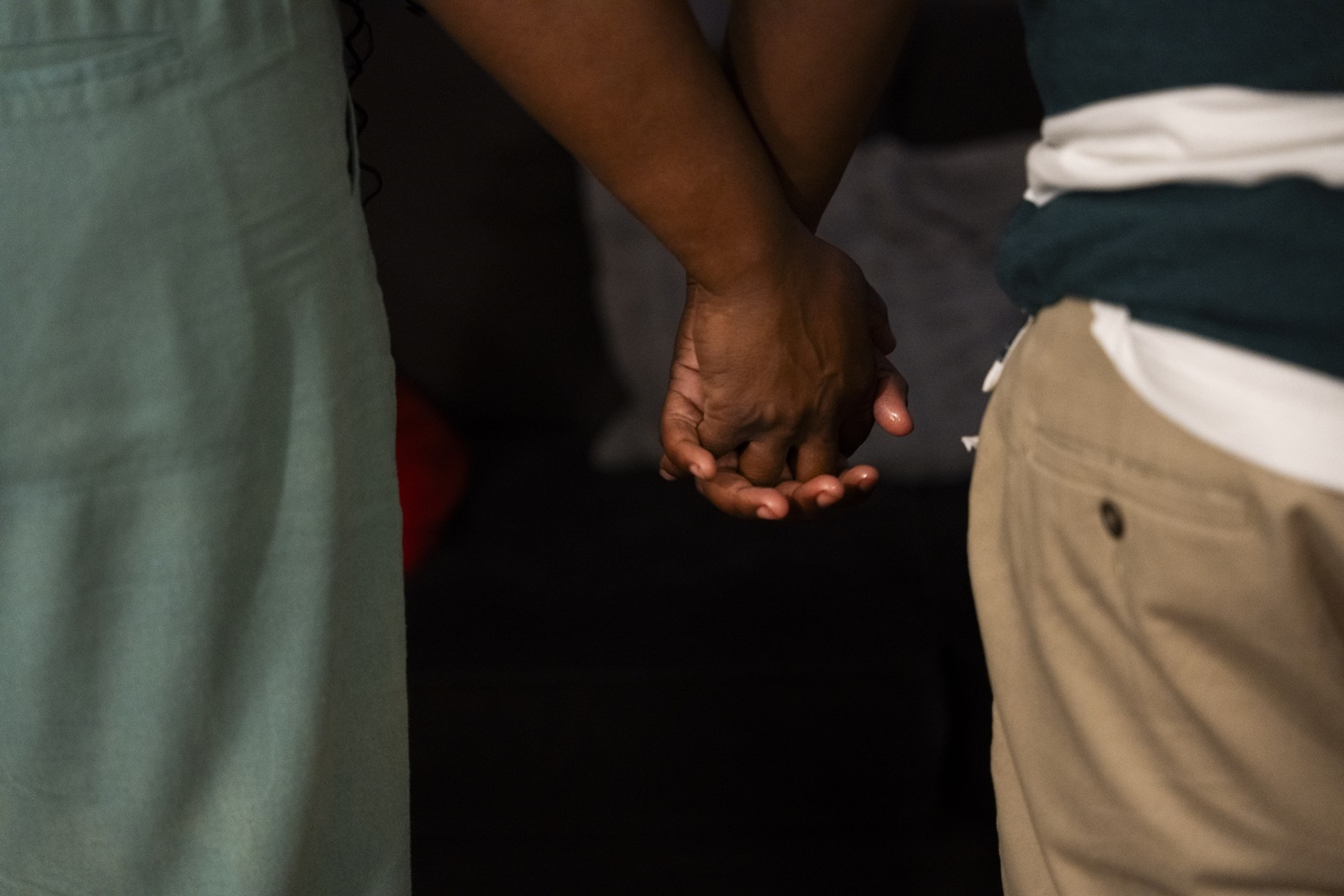This story was originally published by ProPublica.
Two families have sued an East Tennessee school district in federal court, arguing that school officials violated students’ rights when they called the police under a Tennessee law that seeks to severely punish threats of mass violence.
One 11-year-old was arrested at a restaurant even though he denied making a threat. A 13-year-old with disabilities was handcuffed for saying his backpack would blow up, even though only a stuffed animal was inside.
ProPublica and WPLN News wrote about both cases last year as part of a larger investigation into how new state laws result in children being kicked out of school and arrested on felony charges, sometimes because of rumors and misunderstandings. Our reporting in Hamilton County found that police were arresting, handcuffing and detaining kids, even though school officials labeled most of the incidents as “low level” with “no evidence of motive.” The students arrested were disproportionately Black and had disabilities, compared to those groups’ overall share of the district’s population.
The lawsuits against Hamilton County’s school district, filed this month in federal court in Chattanooga, are two of several brought against school officials in Tennessee in response to the threats of mass violence law. Advocates hope to push for changes to the law in the legislative session that begins this month. But the law’s Republican sponsor, Tennessee House Speaker Cameron Sexton, told ProPublica and WPLN News that he is “not looking to make any changes to the law.”
“The zero-tolerance policy for even uttering the words ‘shoot’ or ‘gun’ is an unconstitutional kneejerk reaction by the legislature, and has led school administrators to make rash decisions concerning student discipline,” states one of the lawsuits, filed Thursday on behalf of the 11-year-old autistic student arrested at the restaurant.
When asked by another student last September if he was going to shoot up the school, the 11-year-old said, “Yeah,” according to the lawsuit. The school reported the comment to the police, who tracked him down and arrested him.
![]()
Highlights From This Series
Sept. 25, 2024 | Junior, an 11-year-old, is accused of making a threat at school, which he denies. Officials let him go home with his mom. Hours later, a deputy tracks him down at a family dinner at a LongHorn Steakhouse, cuffing him in the parking lot.
Aug. 8, 2024 | Ty, a 13-year-old with autism, is arrested, charged with a felony and detained for telling a teacher not to look in his backpack because the school would blow up. Ty later explains that he was trying to protect the stuffed bunny inside.
September 2023 | Lee, a 10-year-old fifth grader in East Tennessee, is accused by fellow students of pointing a finger gun. The school expels him for a year for making a threat of mass violence.
![]()
The other federal lawsuit, filed Jan. 3, involves the 13-year-old student with “serious intellectual impairments,” who told his teacher last fall that the school would “blow up” if she looked inside his backpack. The teacher found just a stuffed animal in the backpack, but school officials reported the incident to police anyway.
“Despite the clear absence of any true threat, and in the context of a student with Doe’s intellectual and emotional impairments, Doe was isolated, handcuffed by the [student resource officer], and transported to juvenile detention,” the lawsuit reads. (Both suits refer to the children involved as John Doe to keep them anonymous.) The school later determined that the student’s behavior was a manifestation of his autism, according to documentation included in the lawsuit.
“Despite the clear absence of any true threat, and in the context of a student with Doe’s intellectual and emotional impairments, Doe was isolated, handcuffed by the [student resource officer], and transported to juvenile detention.”
— Lawsuit filed Jan. 3
Both lawsuits allege that district officials violated state law by allowing students receiving special education services to be physically restrained and by failing to follow proper procedure before facilitating the students’ arrests. The school district “infringed on Doe’s First Amendment rights and did so with deliberate indifference,” both lawsuits read.
The juvenile court cases against both students have been dismissed.
The Hamilton County Schools superintendent referred a request for comment to the school board’s attorney, citing pending litigation. The attorney did not immediately respond to a subsequent request for comment. The district has not yet filed a response to either lawsuit.
Disability rights advocates fought for a broader exception in the law that would have prevented police from charging kids who might, as a result of their disability, say or do something that could be construed as a threat.
“What we’re seeing coming out with all of these lawsuits, it’s sort of exactly what we were trying to educate about last year,” said Zoe Jamail, the policy coordinator for Disability Rights Tennessee.
Instead, lawmakers only excluded people with “intellectual disabilities,” failing to address students with other disabilities that affect their communication or behavior. The law does not state how police should determine whether a child has an intellectual disability before charging them. In fact, our reporting found that police arrested the 13-year-old in the lawsuit although school records showed he did have an intellectual disability.
Disability Rights Tennessee and other organizations plan to push for an amendment to the law this legislative session to protect more students with disabilities, especially when the threat is not credible. “The question should really be how can we better support those young people in the school environment, and how can we handle these cases with compassion and reason, rather than reacting and interpreting the law in a way that is not really reasonable,” Jamail said.
A federal judge allowed a lawsuit against a suburban Nashville school board to move forward in November. Two parents had sued Williamson County’s school board on behalf of their children, claiming they were wrongfully suspended and arrested after being accused of making threats of mass violence at school.
The families, Judge Aleta Trauger ruled, had a “plausible claim” that the school board violated the students’ due process rights by suspending them.
Part of the lawsuit involved a middle school student referred to as “H.M.” Teased by friends in a group chat about “looking Mexican,” she jokingly texted her friends, “On Thursday we kill all the Mexicos.” The school board argued in a legal filing that state law required officials to suspend the student and call the police, regardless of whether the threat was serious. In response to a request from ProPublica and WPLN, a school board official declined to comment further.
Trauger questioned Williamson County school board’s analysis of the law, which she said “leads to absurdity.”
“The implausibility of an action — here, a middle school student killing all Mexicans — ought to affect the threat analysis,” she wrote. “What if, for example, H.M. had threatened to cast a magical killing spell on a large group of people? What if H.M. had threatened to fly to the moon and shoot at people using a space laser?”
She denied the Williamson County school board’s motion to completely dismiss the lawsuit. The suit is pending.
***
Series: Crackdown on Student Threats — Tennessee’s Harsh Punishment of Kids | More in this series
Aliyya Swaby is a reporter in ProPublica’s South unit covering children, families and social inequality. Previously, she was a reporter at the Texas Tribune, where she covered public education and state politics starting in 2016.
Paige Pfleger covers criminal justice for WPLN News. She has investigated guns and juvenile justice as a fellow with ProPublica’s Local Reporting Network.
ProPublica is a Pulitzer Prize-winning investigative newsroom. Sign up for The Big Story newsletter to receive stories like this one in your inbox.




























